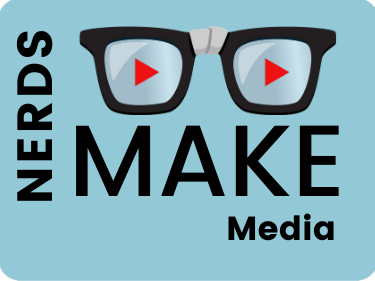Presenter: Sara Zia Ebrahimi, Working Films Development Manager
Official Description: How can independent documentary media makers continue to fundraise for our films during this pandemic? How do we continue to ask for money in a time where there feels like such an intense need for resources from so many? While no one has an exact answer, in this interactive workshop participants will learn how to adapt best practices in fundraising (both from individuals and foundations . . .
Key Takeaways:
The one key takeway Ebrahimi wanted to impart is to shift your mindset to not see yourself as “begging”. Begging is asking for something for nothing in return. You, as documentary filmmakers are creating an incredibly important service to others by sharing important stories, offering alternative ways to learn, bringing attention to issues, developing emerging talent (with the crew you hire) etc. Lead with that mindset (even though the culture we live in under capitalism doesn’t value our work). Make sure you have a clear sense of what you are providing to the world before you start fundraising. Your fear of not making the project has to be greater than your fear of asking for money. Always remember – documentary filmmaking is bigger than you – think about what is unique about the form of documentary to move hearts and minds. It seems obvious to you, but you need to communicate it to others. Cultural work is often the first step to greater social change. Many, many currents create a wave.
Other takeaways include:
The same principles of fundraising still apply in this era. You just may have to ask more people over a larger span of time, for possibly less money. But the number one reason people give is because someone asked them. So how do you get to the moment where you can ask? Because if you don’t ask, people won’t give. People can decide for themselves whether they are able to. Look for creative ways to stay connected with your fans/potential supporters.
She often hears “I don’t know the kind of wealthy people who can donate”. She pushes back that while it may be theoretically easier to get a wealthier person to write a large check, lower and middle income people donate a proportionally larger percentage of their income. So it’s probably more feasible to go more grassroots and get more smaller donations. Try to break out of the feeling of being in an insular community where “we are always passing $20 back and forth between each other”. Figure out who is beyond your immediate filmmaker friend circle – your doctor and dentist etc. Think more extensively about who you (and your entire production team) has ever met. She is asked for money all the time, her dentist is not.
In Gmail, any person you’ve exchanged at least two emails with is stored. Go online to find the simple process to export this list, which will help you see your much broader base. However, the number one mistake she sees is people starting off by asking for money. But fundraising should fundamentally be about relationships, not asking for money. It’s not transactional, it’s relational.
When going for grants, the reality of the philanthropic world is that it’s not just about the strength of your proposal. It helps to have a relationship with the program officer. Relating to them human to human is very important, separating out the human from the institution and not seeing them as just as a gatekeeper. Don’t overextend yourself on social media so that your efforts are mediocre on multiple platforms. Figure out the best one for your audience and focus on it.
Roles to take on to build relationships:
Cheerleader – are you encouraging other people and their projects with the same enthusiasm as you would want from them?
Connector – Are you helping build a web of resources among different people?
Curator – Can you be seen as a “go-to” for the topic as a documentary? Or a thought leader in that kind of filmmaking (for instance if you work with youth filmmakers a lot).
